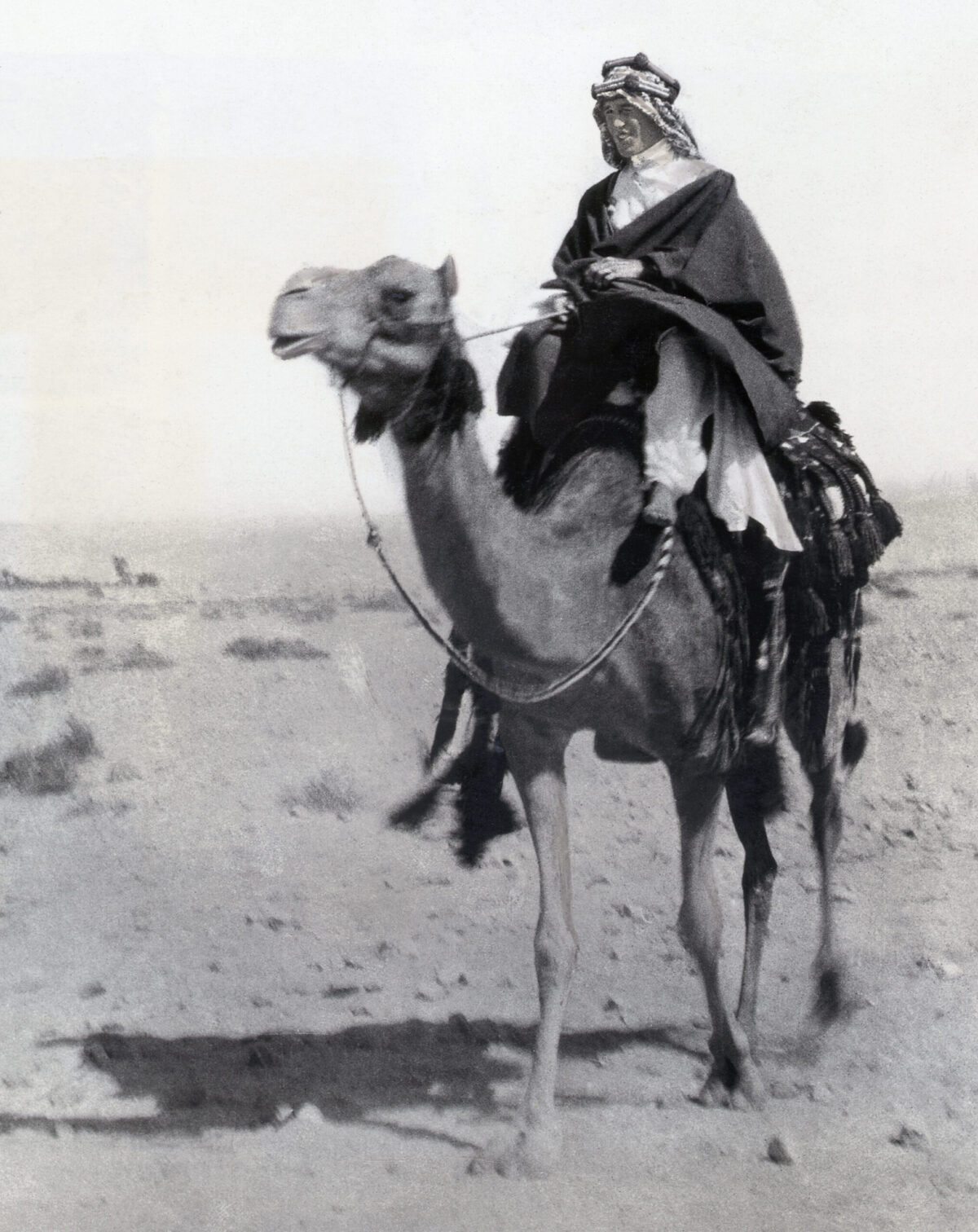In August 1917, Major T.E. Lawrence—the celebrated “Lawrence of Arabia”—penned a brief guide for British officers who would be assisting Arab forces in their ongoing revolt against the Ottoman Turks. Published in The Arab Bulletin, a highly secret magazine on Middle East politics intended for British leaders, Lawrence’s “27 Articles” succinctly summarized what he had learned the preceding year as a highly successful adviser to irregular Arab troops. Military History presents key elements of the article here in edited form.
■ Go easy for the first few weeks. A bad start is difficult to atone for, and the Arabs form their judgments on externals that we ignore.
■ Get to know their families, clans and tribes, friends and enemies, wells, hills and roads. Do all this by listening and by indirect inquiry.
■ Your place is advisory, and your advice is due to the commander alone.
■ Win and keep the confidence of your leader. Strengthen his prestige at your expense before others when you can.
■ Remain in touch with your leader as constantly and unobtrusively as you can.
■ Do not be too intimate, too prominent or too earnest.
■ The foreigner and Christian is not a popular person in Arabia. However friendly and informal the treatment of yourself may be, remember always that your foundations are very sandy ones.
■ Cling tight to your sense of humor. You will need it every day.
■ It is difficult to keep quiet when everything is being done wrong, but the less you lose your temper, the greater your advantage. Also, then you will not go mad yourself.
■ Do not try to do too much with your own hands. Better the Arabs do it tolerably than that you do it perfectly. It is their war, and you are to help them, not to win it for them.
■ Wear an Arab headcloth when with a tribe….A thick headcloth forms a good protection against the sun, and if you wear a hat, your best Arab friends will be ashamed of you in public.
■ Disguise is not advisable. Except in special areas, let it be clearly known that you are a British officer and a Christian. At the same time, if you can wear Arab kit when with the tribes, you will acquire their trust and intimacy to a degree impossible in uniform….Also then the Turks will not hang you when you are caught.
■ Religious discussions will be frequent….Their conviction of the truth of their faith, and its share in every act and thought and principle of their daily life, is so intimate and intense as to be unconscious, unless roused by opposition. Their religion is as much a part of nature to them as is sleep or food.
■ In familiar conditions, they fight well, but strange events cause panic. Keep your unit small….The more unorthodox and Arab your proceedings, the more likely you are to have the Turks cold, for they lack initiative and expect you to. Don’t play for safety.
■ Their minds work just as ours do, but on different premises. There is nothing unreasonable, incomprehensible or inscrutable in the Arab.
■ Avoid too-free talk about women. It is as difficult a subject as religion, and their standards are so unlike our own that a remark, harmless in English, may appear as unrestrained to them as some of their statements would look to us, if translated literally.
■ The beginning and ending of the secret of handling Arabs is unremitting study of them. Keep always on your guard; never say an unnecessary thing; watch yourself and your companions all the time; hear all that passes, search out what is going on beneath the surface, read their characters, discover their tastes and their weaknesses, and keep everything you find out to yourself.
■ Have no interests and no ideas except the work in hand, so that your brain is saturated with one thing only, and you realize your part deeply enough to avoid the little slips that would counteract the painful work of weeks. Your success will be proportioned to the amount of mental effort you devote to it.
Originally published in the May 2010 issue of Military History. To subscribe, click here.





